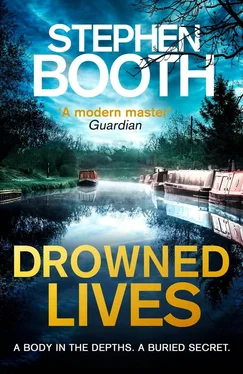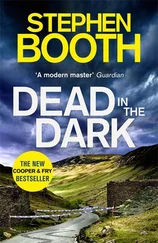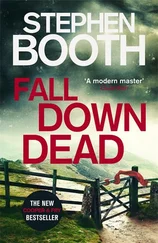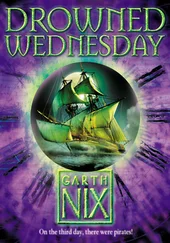He and Sally married in the late 1970s, but never had children, which was a great disappointment to Sally. There was an underlying hint that she’d been envious of Alison, who now had a new child, nineteen years younger than Frank.
‘You don’t have to tell me all this,’ I said. ‘It’s Samuel I want to know about.’
But he was well into his second tumbler of whisky, and the alcohol was loosening his tongue. Once he’d started talking, it came in a flood, while his eyes roved the room, staring at the clock, peering at the fish in their tank as if he could read a meaning to his life in their gaping mouths and flickering tails.
When the Chaplins visited Whittington, Sally had been taken by the young Caroline, who was bright and musically talented. More than once, disparaging comparisons had been made between Caroline and Frank. The suggestion that Frank had cause to regret inheriting his character and looks from his father rather than from his mother planted a seething animosity in his heart.
David Chaplin had died in 1986 after a stroke. Frank was devastated, and made no secret of the fact that no relationship went anywhere near the closeness he’d felt to his father.
When his mother was killed in that car crash on the A38 just two years later, his first reaction was that justice had been done at last. Frank had hardly been able to mourn his mother in the way he should have, because there was no room for fresh mourning alongside the grief for his father. In his soul, he became once again that rebellious, long-haired seventeen-year-old. He didn’t want to speak to Sally, and certainly not to his stepfather. All he wanted was to be left alone to replay those old Rolling Stones songs — if only in his mind.
‘Sympathy for the Devil,’ he said.
‘I’m sorry?’ Was he referring to Samuel? Did Frank really see his stepfather as an evil monster who’d wrecked his life? I was beginning to wonder where Frank had been on the night that Samuel was killed, when he spoke again.
‘That was my favourite. Most people go for “Honky Tonk Women” or “Jumpin’ Jack Flash” from that period. But I liked the Beggar’s Banquet album the best. Do you know it?’
‘Oh, the Stones? I was more of a Beatles fan myself. Everybody was always one or the other, weren’t they?’
‘Sure.’ He looked at me condescendingly, and for a moment I could see that sneering, bad-tempered teenager. ‘“Street Fighting Man”, that was on Beggar’s Banquet . But I liked “Sympathy for the Devil” best. Can you remember how it starts?’
‘Yes, I think I remember that.’
Frank laughed and looked for more Glenmorangie. ‘The number of times I played that at full blast after Mum told me she was going to marry Samuel Longden. Over and over. It must have driven her up the wall. “Please allow me to introduce myself, I’m a man of wealth and taste.” She knew who it was meant to be about, all right.’
‘Did you lose touch with Samuel altogether after your mother died?’
‘For a while,’ said Frank. ‘But he turned up again.’
Frank had been made to feel uncomfortable at his own mother’s funeral. For a start, it was far more lavish than he was used to, and the eulogies were too pious and sentimentalised for his non-conformist inclinations. He knew very few of the people there to mourn his mother. They’d been friends of hers and Samuel’s and ‘not his type’, he said. The salt in his wounds was the contrast between the no-expense-spared extravagance of his mother’s sending-off and the perfunctory hymn and a few words as his father’s plywood coffin had been shoved into the flames at a crematorium near Sutton Coldfield.
For ten years after that he’d seen almost nothing of Samuel and Caroline Longden. As Frank put it sourly, ‘they didn’t move in the same circles’. Once or twice, Caroline had phoned to ask how Frank and Sally were and suggested the Chaplins might like to visit Ash Lodge. But the right time had never presented itself, and perhaps she hadn’t meant it anyway, said Frank. There had never been any possibility of the Longdens visiting Chasetown.
And then, out of the blue, old Samuel had appeared at the bowling club one Sunday morning. Frank got the shock of his life when he saw the old man standing on the far side of the green as he was lining up one of his woods. It put him right off his aim, and his partner had made sarcastic comments. Samuel had just stood there, in his black overcoat, leaning on his stick, until the game was over. And then he’d walked over to Frank and had greeted him like a long-lost son. Yes, that was exactly it, said Frank — like a long-lost son.
‘When was this, Frank?’
‘Last year, towards the back end. September, probably.’
‘Just five or six months ago.’
‘About that.’
‘Okay.’
Frank returned his gaze to the fish tank, switching effortlessly out of the present and back into the past.
Samuel had wanted to take Frank somewhere for lunch. But Frank had refused to go ‘anywhere posh’ and they ended up eating meat pies in the clubhouse. He often stayed all day at the bowling club, and so Sally wouldn’t be expecting him for lunch. It was almost as if Samuel had known this, just as he’d known where to find Frank despite their lack of communication for years.
And then the old man asked for his stepson’s help. Frank had been so astonished that he nearly choked on his pie. But as Samuel told his tale, Frank had become increasingly sure that his stepfather had turned senile and lost his marbles completely. It was a complicated, rambling story that went back into ancient history and was all about people Frank had never heard of being murdered by other people he’d never heard of. There was a feud, Samuel said, lasting two hundred years — and it was Samuel’s job to set the record straight and take revenge. That was the first time that Frank had ever heard the name Buckley mentioned.
‘You told me at Chasetown that it was your mother or father who mentioned Samuel once being a Buckley,’ I said.
‘So I was lying. You might think it was for your own good, Chris, when I’ve finished.’
Despite my prompting, Frank was hazy on the details of the feud that Samuel described. Yes, he remembered there had been a William Buckley a long time ago who was an engineer of some kind, connected with the canal. He’d been a good man, but had upset the wrong people and they had him disgraced and murdered. That was Samuel’s very phrase — ‘disgraced and murdered’. And there was another one who was something to do with the canal, with a strange name. Yes, it could well have been Josiah. Murdered too, Samuel had said.
But it had all passed over Frank’s head. At least until Samuel mentioned Alison, Frank’s mother, and ‘the murder of another Buckley’. The old man said the feud had pursued him for centuries, and that it claimed the life of his son. Of course, Frank had no idea that Samuel had a son, and made the mistake of laughing when the old man explained that it was his unborn son. Because Alison had been fifty years old when she and Samuel’s secretary, Karen Mills, had died on the A38.
Samuel became angry at the laughter and told Frank that there was just one thing he needed him to do. There were documents, Samuel said, which proved what he’d been saying, which implicated those responsible for the murders. He wanted Frank to look after them until they were needed. Samuel believed it was too risky keeping them at Ash Lodge. He thought the documents would be safe in the hands of someone like Frank, who was ‘family’. Safe — but on one condition.
‘He told me then about how he’d been a Buckley until he had changed his name,’ said Frank. ‘And he told me who the other family were in this feud.’
Читать дальше












